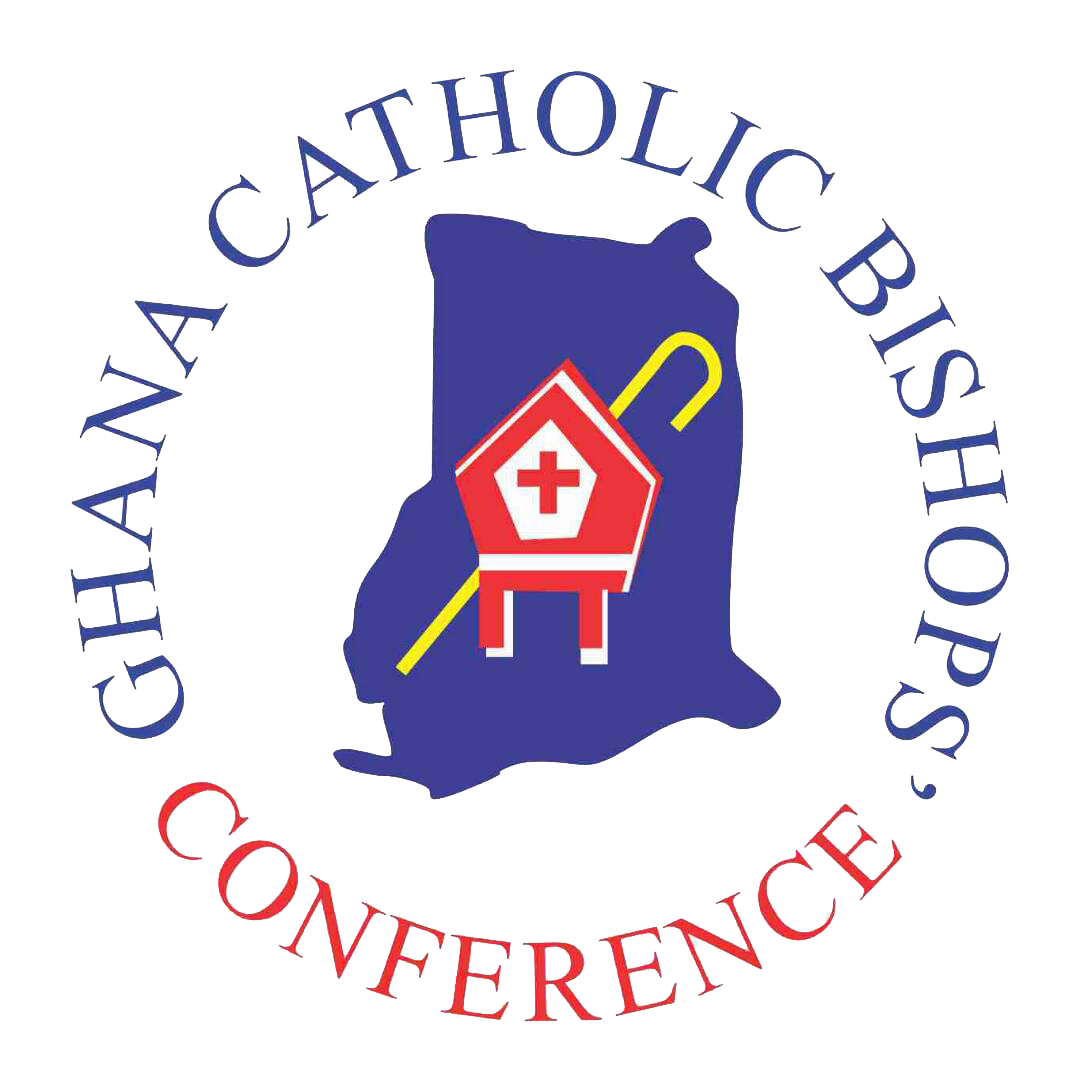Rev. Msgr. Dr. Stephen Ntim, Dean of Faculty of Education of the Catholic University College of Ghana, says very little will be achieved if lay people do not witness to good governance, justice and peace in spite of efforts by the Church. He said the Church expects the laity to play active roles in denouncing injustice, and promoting good governance, peace and rule of law reminding Ghanaians that “God is the only source of the moral order and without Him our efforts will be fruitless.”
He said this in a keynote address at the 12th Biennial Marshall-Moreau- Murat (MMM) Memorial Lectures on the topic: The Role of the Church in the Promotion of Good Governance, Justice and Peace in West Africa at the Christ the King Parish Hall in Accra.
The MMM Lectures were instituted in 1989 by the Noble Order of Knights of Marshall in Memory of Sir James Marshall, a Scotsman who served as Chief Justice in the then Gold Coast, after whom the Noble Order was named.
Msgr. Ntim in his 31-page presentation, examined the biblical and theological basis for the Church’s involvement in the promotion of Good Governance, Justice and Peace and discussed the extent of the West African Church’s role in promoting those issues within the Sub-region and the Continent.
He also looked at Good Governance and Justice in the context of the Church’s mission, specifically on political governance and the Rule of Law, Administrative Governance and Effective, Political Process and finally the Role of the Catholic Laity, especially the Knights in witnessing to Good Governance, Justice and Peace.
Msgr. Ntim said the promotion of Good Governance, Justice and Peace by the Church was not an option but “it is a fundamental duty of the Church. This becomes more compelling in the West African and the African situations.”
“Civil unrests in the Sub-region since the latter part of the 1980’s to the present, are suggestive of the reality of bad governance. Bad governance is the push and pull of this instability.”
He said for example, “resources that are supposed to be for the benefit of the common good gets to a few hands. This breeds the feeling of social and political exclusion and tends to exacerbate tribal and ethnic sentiments of the aggrieved.”
He added: “this de facto is what injustice and unfairness is all about. The moment that some groups of people feel socially and politically excluded, the natural response is to assert their self worth by resorting to arms if persuation fails.”
The Msgr. said the continental situation was not better either. “In the midst of such situation, the West African Church cannot and had not remained silent.”
At the regional level, he said the Regional Episcopal Conference of West Africa (RECOWA) had been on the forefront and organised Conferences with the aim of promoting Good Governance, Justice and Peace.
At the national level, Episcopal Conferences of Bishops have unequivocally spoken out against bad governance, injustice and inhuman treatment of man by man, he said.
Msgr. Ntim said Africa had been plagued by electoral violence for the last three decades noting that after more than a century of Christianity, some Christian leaders in many African countries still resorted to excessive particularism and ethnocentrism in managing the affairs of state.
“This leads to political exclusion of some ethnic groups and becomes a recipe for civil unrests,” he added.
He stated that some African political leaders instead of exercising good stewardship and upholding the common good, rather give premium to selfish, ethnic and partisan interests and thereby exacerbate poverty on the continent and in the Sub-region.
He said “many of our young ones” were condemned to illiteracy, which he said, were the results of bad governance, injustice, lack of accountability, corruption and insensitivity towards other human beings.
This unfairness called injustice becomes a recipe for civil strife.
He said good governance, justice and peace were intertwined.
Msgr. Ntim said that “economic governance implies ensuring that the resources of the nations are managed equitably: the poor have access to basic necessities such as food, housing, potable water, electricity, that there is zero tolerance for corruption, because corruption undermines economic equity.”
“Where there is equity, there is justice. Where there is justice, there is respect for each person’s dignity and people will hardly resort to violence to have their rights respected. Political governance puts premium on consultative Processes whereby different sections of society are consulted on issue affecting their common good,” he added.
He said all these promote transparency and avoid political exclusion and prejudice.
Msgr. Ntim pointed out that the Church in Ghana and other parts of the Sub-region and Africa, had been involved in ensuring transparency during elections, aware that one of the main causes of conflicts in the continent in general is disputed elections results.
Hence, Democracy, the Rule of the Law and Political Representation must be subject to the morality of the ends to which it pursues, namely, the good of the human person and the common good of all.
He declared: “It is in this sense that the Church in promoting Good Governance, Justice and Peace has always emphasised the moral components of political representation.”
Msgr. Ntim said that political authority must be exercised by persons, who are able to accept the common good, and not the prestige or the gaining of personal advantages as the true goal of political representation.
He said consequently, the Church had always prayed against political corruption as one of the serious deformities of the democratic system because it betrays both the moral principles and norms of social justice.
It compromises the role of the State, causing distrust with respect to social institutions making it possible for those who possess the means and the power to influence political leaders to have their way.
He said in a democracy, the right to information was paramount since information enhances the people’s understanding of the political issues and can thus contribute effectively to the political debate.
Msgr. Ntim said administrative governance and effective political process could be subsumed under two fundamental ethical principles, service to the common good and trusteeship.
In respect of the former, society should expect a public servant to fulfil the moral imperative to use his or her official position to serve the public interest, he added.
Regarding the latter, good governance is based on public trust. A public institution cannot fulfil its role effectively without an adequate degree of public trust, which is granted to public servants and institutions that have demonstrated trust worthiness.
Msgr. Ntim said, the public servant is morally committed to serve the highest interest of society on one hand, just as the public is also morally committed to appreciate this service through good governance.
Msgr. Ntim also touched on the roles of the Knights of Marshall in witnessing to Justice and Peace, saying that they were capable of transforming social structure bringing peace, where there was conflict, nurturing fraternity where there was hatred, and seeking justice, where there was exploitation of man by man.
He said Christian love, impels and compels the Catholic Knights, individually and collectively as a civil society, to denounce injustice in all its forms, propose justice and peace and make a firm commitment towards a culture that puts premium on grater moral awareness.
As the nation geared up, for 2012 December elections, he urged Marshalans to do all they could, to promote respect for tolerance, respect for differences – political, ethnic and tribal.
They should also avail themselves at the polling stations to ensure fairness bearing in mind that Peace and fairness were in the interest of all Ghanaians.
He lauded two Ghanaians who defied all odds and threats of detentions in the 1960’s to witness to good governance, justice and peace.
He said the late Mr. P. K. K. Quaidoo a member of the Knights of Marshall and a member of the then Convention Peoples Party and Dr. Kofi Abrefa Busia, Prime Minister of Ghana.
“I give these two Ghanaians as examples of Christian witness to Good Governance, Justice and Peace,” adding “we need such caliber of Christians in Ghana today”.
* Msgr. Ntim

